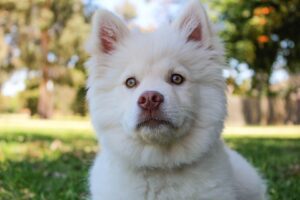The Resilience of Mother Dogs: Nurturing Instincts and Coping Mechanisms When Puppies Depart
Introduction
The bond between a mother dog and her puppies is a remarkable and heartwarming sight to behold. Mother dogs demonstrate exceptional nurturing instincts and care for their offspring, ensuring their survival and proper development. However, as the puppies grow and eventually depart to their new homes, a unique set of challenges arises. In this article, we will explore the resilience of mother dogs, their coping mechanisms when puppies depart, and answer frequently asked questions about this topic.
Part 1: Nurturing Instincts of Mother Dogs
Mother dogs are naturally equipped with strong nurturing instincts that ensure their puppies’ well-being. These instincts are deeply rooted in their biology and play a vital role in nurturing and raising their puppies. Let’s take a closer look at some of these nurturing behaviors:
1. Nursing: One of the most important aspects of a mother dog’s nurturing instincts is nursing her puppies. Mother dogs produce milk that is specifically tailored to provide essential nutrients for their young. They carefully position themselves to allow easy access for the puppies to feed, helping them develop strong immune systems and ensuring proper growth.
2. Cleaning and Grooming: Mother dogs are also responsible for keeping their puppies clean and grooming them regularly. This instinct extends beyond simple hygiene; it helps stimulate blood circulation and strengthens their bond. Moreover, grooming by the mother dog aids in puppy digestion as she encourages their elimination reflex through licking their bellies and anal regions.
3. Protectiveness: Mother dogs are inherently protective of their puppies. They create a secure environment for them by keeping them close, guarding against potential threats, and even challenging intruders. This protectiveness extends to teaching puppies about social interactions, boundaries, and communication by modeling appropriate behaviors.
4. Teaching and Weaning: As the puppies grow, mother dogs play a crucial role in teaching them important skills. They demonstrate how to eat solid food, drink water, and interact with their environment. Gradually, mothers start the process of weaning by reducing their nursing sessions, encouraging independence and self-reliance in their puppies.
Part 2: Coping Mechanisms When Puppies Depart
When the time comes for the puppies to leave, mother dogs face a challenging transition. While it may be emotionally difficult for both the mother dog and the owner, mother dogs possess unique coping mechanisms to manage this separation:
1. Adaptability: Mother dogs are incredibly adaptable animals. They can adjust to new circumstances and environments relatively quickly. This trait allows them to cope with the loss of their puppies and accept the change in their routine.
2. Redirecting Nurturing Behaviors: After the puppies depart, the mother dog might transfer her nurturing behaviors, such as cleaning and grooming, to other objects or animals in her environment. This redirection allows the mother dog to still fulfill her nurturing instincts, even in the absence of her puppies.
3. Time for Self-Care: The departure of the puppies gives the mother dog an opportunity to focus on her own well-being. She can regain her strength, rejuvenate, and take a break from the demands of motherhood. This period of self-care is crucial for her physical and mental health.
4. Rebuilding Social Bonds: Mother dogs possess a remarkable ability to form new social bonds. They can easily adapt to new relationships with humans or other animals in the household. This adaptability aids in the healing process and helps the mother dog establish new connections.
Part 3: FAQs (Frequently Asked Questions)
Q1: Will the mother dog miss her puppies after they leave?
Yes, it is natural for a mother dog to miss her puppies after they depart. The bond between a mother dog and her puppies is strong, and the sudden separation can induce feelings of loss and sadness. However, mother dogs possess coping mechanisms that enable them to adapt to the change.
Q2: How can I help my mother dog cope with the departure of her puppies?
To help your mother dog cope with the departure of her puppies, create a comforting environment by providing her with familiar bedding, toys, and routines. Engage in positive interactions and play sessions to distract her from the absence. Additionally, offering her extra attention, love, and care will help facilitate the healing process.
Q3: Can a mother dog become depressed after her puppies leave?
While it is possible for a mother dog to experience temporary sadness or exhibit quieter behavior after her puppies depart, true clinical depression is rare among dogs. Most mother dogs are resilient and can adapt well to the separation with appropriate care and attention from their owners.
Q4: Should I keep one of the puppies with the mother to ease her transition?
While it may seem like a good idea to keep one of the puppies with the mother dog to ease her transition, it is generally not recommended. The presence of another puppy may prolong the mother’s nesting instincts and delay her ability to fully accept the situation. It is best to allow her to adapt without constantly reminding her of her loss.
Q5: Can a mother dog become aggressive towards her puppies when they grow older?
Although it is rare, some mother dogs may show signs of aggression towards their puppies as they grow older. This behavior typically occurs if the mother feels threatened or if there are underlying health issues. If any signs of aggression are observed, it is important to seek professional advice to ensure the safety of both the mother dog and the puppies.
Conclusion
The resilience of mother dogs is a testament to their remarkable instincts and adaptability. As puppies depart from their mother, both the mother dog and the owner may experience a mix of emotions. However, understanding the nurturing instincts and coping mechanisms of mother dogs can help ease the transition and ensure the well-being of both the mother and her puppies. By providing proper care, attention, and a supportive environment, we can assist mother dogs in navigating their evolving roles and continue to celebrate the awe-inspiring bond they form with their offspring.

